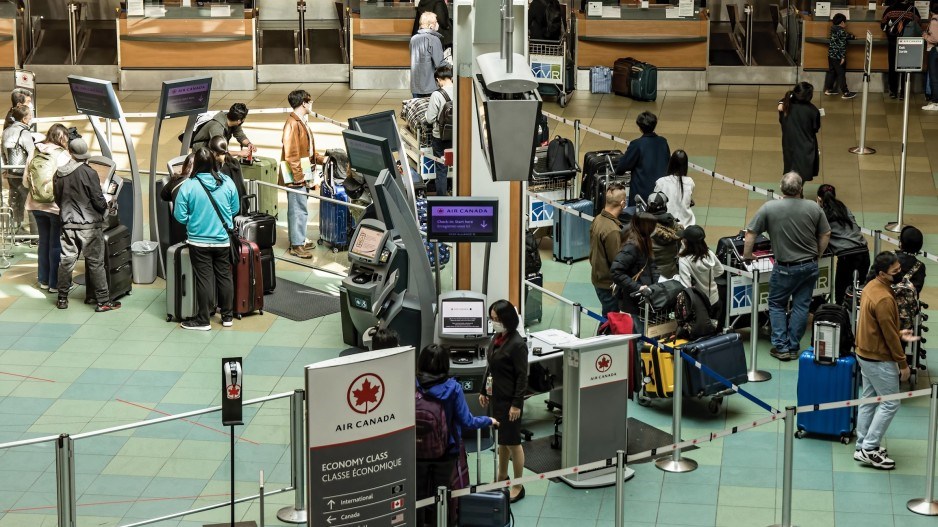The BC Centre for Disease Control is warning travellers who were at YVR on Thursday, Nov. 23 they might have been exposed to measles.
A passenger with measles travelled through the Vancouver International Airport on this date and spent time at both the international and domestic terminals.
At YVR, the passenger spent time between the arrival gate D73 at the international terminal and at the departure gate C48 in the domestic terminal, where the ill passenger waited for their next flight.
The passenger travelled on the following flights to and from YVR:
Air Canada Flight 79 which departed from Dubai, United Arab Emirates at 2:17 a.m. local time and arrived in Vancouver at 6:07 a.m. Pacific Time
Air Canada flight 206 which departed from Vancouver at 10:36 a.m. Pacific Time and arrived in Calgary, Alta., at 1:06 p.m. Mountain Time
People on the same flights or who were at Vancouver International Airport (YVR) may have been exposed to measles.
Anyone who was on these flights on Nov. 23 and was travelling with an unvaccinated infant, or is immunocompromised and not immune to measles, Wednesday, Nov. 29, would be the last day to receive post-exposure prophylaxis with immunoglobulin to minimize the risk of measles developing.
Measles is a highly infectious disease transmitted by airborne spread.
Most people will be immune to measles due to prior immunization and others, especially older adults, may have had measles as a child and are immune.
Individuals most at risk from measles are those who are completely unvaccinated against the disease including babies under one year of age.
The passenger tested positive for measles in Alberta.
Public health officials in Alberta issued an alert through the Canadian Network for Public Health Intelligence on Tuesday, Nov. 28 and posted an advisory online.
To get the immunoglobulin, call your local health unit and ask for the communicable disease nurse. To find a public health unit anywhere in the province, use the locator on ImmunizeBC.ca.
Symptoms of measles develop 7 to 21 days after exposure
Symptoms of measles include fever, cough, runny nose, red eyes and a rash that starts first on the face and neck, and spreads to the chest, arms and legs. The rash lasts about four to seven days.
If you are not immune and were exposed to the measles virus, you could get measles.
If infected, you will develop symptoms within seven to 21 days of being exposed. If you were exposed during travel through Vancouver International Airport on Nov. 23, symptoms could develop as early as Nov. 30 and as late as Dec. 14.
If you become ill and suspect you may have measles, call your healthcare provider and inform them that you may have measles, so that they can arrange to see you in a manner that avoids infecting others in the waiting room.
You can also call your local health unit and ask for the communicable disease nurse or call HealthLinkBC at 8-1-1.
8-1-1 is a free-of-charge provincial health information and advice phone line available in 130 different languages.
Stay up-to-date on immunizations: BCCDC
The BCCDC advises British Columbians to review their immunization status prior to travel.
Stay up to date on all recommended immunizations.
People born after 1970 should have received two doses of a measles vaccine. It is often given as combined measles, mumps and rubella vaccine (MMR) or combined with chickenpox vaccine (varicella) vaccine (MMRV).
Those who have received only one dose of measles vaccine and are born after 1970 should obtain a second dose of vaccine. Those who were born prior to 1970 are likely to be immune due to prior measles infection.




